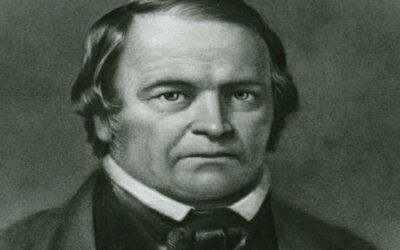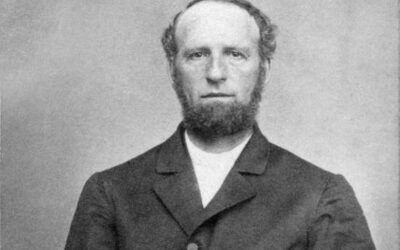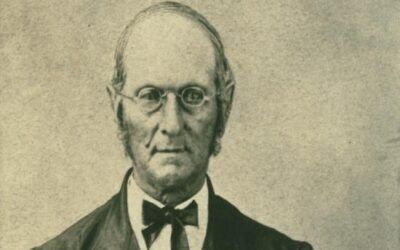Seventh-day Adventists are a Protestant Christian denomination who hold to the biblical seventh-day Sabbath. From this belief, they get the first part of their name.
But how about the second part—”Adventist”?
“Adventist” refers to a group of people who believe in the literal arrival of Christ to earth. Seventh-day Adventists adopted the name because it points to their roots as a movement and encapsulates their ultimate hope in this life—being reunited with Jesus Christ when He returns to take us to heaven.
We’ll give you some more details as we answer:
- What is the root meaning of “Adventist”?
- Where did the term “Adventist” come from?
- Why was “Adventist” chosen for the Seventh-day Adventist denomination’s name?
What is the root meaning of “Adventist”?
The term “Adventist” comes from the Latin word adventus, which means “arrival” or “appearance.” It’s where we get the word advent, referring to the arrival of someone or something important. An Adventist is someone waiting for the arrival of Christ for the second time.
You may have heard Christians talk about the Advent season—the few weeks before Christmas when we celebrate the first coming of Christ. “It is intended as a season of devotion.” 1
Advent is not just about Jesus’ first coming. It also applies to His second coming, especially when the word second is placed in front of advent.
Where did the term “Adventist” come from?
Photo by Sincerely Media on Unsplash
The term “Adventist” originated in the early to mid-1800s from a religious awakening in the United States known as the Millerite Movement. Through studying the Word of God, people in this movement, including its founder William Miller, believed that Jesus was going to return soon in a literal manner prior to the millennium (the 1,000-year period mentioned in Revelation 20). This belief earned them the name Adventist.
The Millerites had concluded, based on a prophecy in Daniel 8:14, that Jesus would come in 1844. When He didn’t, some Millerites formed denominations that continued to study Scripture for more guidance.
The ones that still exist today include:
- Seventh-day Adventists
- Christadelphians
- The Advent Christian Church
- The Church of God (Seventh Day)
Today, other Christian denominations fall into the category of Adventist because they also anticipate the soon return of Jesus prior to the millennium 2 :
- The Church of God and Saints of Christ
- The Church of God General Conference
- Grace Communion International
- The Philadelphia Church of God
- The United Church of God
But we want to zoom in on why Seventh-day Adventists chose to include “Adventist” in their name.
Why was “Adventist” chosen for the Seventh-day Adventist denomination’s name?
Photo by Cosmic Timetraveler on Unsplash
Coming out of the Millerite Movement, those who formed the Seventh-day Adventist Church still held onto their belief in the soon coming of Christ. Thus, our name points back to our origins and forward to our continued hope. The Second Coming is the climax of our faith.
Sin separated humans from God and caused them to lose the beautiful Garden of Eden. It plunged us into a world where good and evil are at war with one another and the devil is wreaking havoc and causing suffering.
But when Jesus returns, He will put an end to sin and live with His people forever in an Eden-like paradise (2 Peter 3:10–13; Revelation 21:1–4).
The Bible helps us to see that this event is not far off in the future. Instead, Jesus gave signs to indicate that it is very near. We are living in the final days of earth’s history!
This belief was in mind when in 1860, 25 church leaders gathered in Battle Creek, Michigan, to decide on the church’s name. Before this point, other names had been suggested, such as “Church of God.” But the leaders wanted something that would express our beliefs without being a turn-off to others. 3
Credit for suggesting “Seventh-day Adventist” goes to David Hewitt, the first Seventh-day Adventist in Battle Creek and a leader in the church. 4
It was accepted nearly unanimously because it “set forth [their] faith in the near coming of Christ, but would also show that [they] were observers of the seventh-day Sabbath.”
Ellen White, one of the church’s co-founders, put it this way:
“The name, Seventh-day Adventist, carries the true features of our faith in front.” 5
But please note:
This name was never meant to create a sense of exclusivity. Adventists believe that there are true Christians in many different denominations. Our name simply expresses our belief that Jesus is coming soon to end the war between good and evil.
“Adventist” reminds us of our blessed hope.
The name “Adventist” identifies a group of people who love Jesus and expectantly wait for the Second Coming, as promised in the Word of God. Instead of keeping it to ourselves, we want to share the “blessed hope” with others and help them to be ready for this exciting event (Titus 2:13, ESV).
Thus, our name—instead of separating us from other people—drives our mission to reach out and bless others with the good news that Jesus is coming to redeem us.
To learn about Adventists’ fundamental belief in the soon return of Jesus,
- “Advent,” Webster’s 1828 Dictionary [↵]
- Listed in the Handbook of Denominations in the United States by Roger E. Olson. [↵]
- Oliver, Barry, “Denominational Organization, 1860–1863,” Encyclopedia of Seventh-day Adventists, April 28, 2021. [↵]
- Gomide, Samuel, “Hewitt, David (1805–1878),” Encyclopedia of Seventh-day Adventists, April 28, 2021. [↵]
- White, Ellen, Spiritual Gifts, vol. 4b (Seventh-day Adventist Publishing Association, Battle Creek, MI, 1864), p. 54. [↵]
Related Articles
More Answers
The Protestant Roots of the Seventh-day Adventist Church
Learn how the Seventh-day Adventist Church finds its roots in the Protestant Reformation. And discover what makes the pursuit of truth so integral to Protestantism.
History of the Adventist Church
After Jesus didn’t return in 1844 as many Millerites had expected, a small group rediscovered Bible truths that led them to start the Seventh-day Adventist Church in 1863. Here’s their story.
Protestant Reformation
Martin Luther. The 95 Theses. The Reformation. The Protest. Maybe you’ve heard these terms and wondered, What’s the big deal?
Who was J.N. Andrews and How Did He Contribute to Adventism?
John Nevins Andrews (1829–1883) was an influential leader in the early days of the Seventh-day Adventist Church. He was a Bible scholar who helped shape several Adventist beliefs and juggled many roles in the Church. Most notably, he was the first official missionary for the Adventist Church outside North America.
William Miller
William Miller was a farmer who began a nationwide religious movement surrounding the Second Coming of Jesus. Learn about the life and legacy of this Christian pioneer.
Who Was James Springer White?
James White, a formidable co-founder of the Adventist Church, worked with his wife, Ellen White, to support, guide, and encourage this new body of believers.
Seventh-day Adventist Founders
The key figures and founders of Seventh-day Adventism were a group of people from various Protestant Christian denominations who were committed to studying the Word of God and sharing about Jesus Christ.
Joseph Bates
Joseph Bates was a sailor-turned-preacher who joined the Millerite Movement and waited for the Second Advent of Jesus to happen in 1844. Despite being disappointed when this didn’t occur, Bates held onto his faith and played an integral part in starting the Seventh-day Adventist Church.
What is the Great Disappointment and What Can We Learn From It?
The Millerites predicted Christ’s return on October 22, 1844, but Jesus never arrived. Another event took place. Discover what really happened and what the Great Disappointment can teach us today.
The Millerite Movement
William Miller’s Bible study led people to await Jesus’ Second Coming in 1844. This movement became known as the Millerite Movement and led to the Seventh-day Adventist Church.
Didn’t find your answer? Ask us!
We understand your concern of having questions but not knowing who to ask—we’ve felt it ourselves. When you’re ready to learn more about Adventists, send us a question! We know a thing or two about Adventists.








